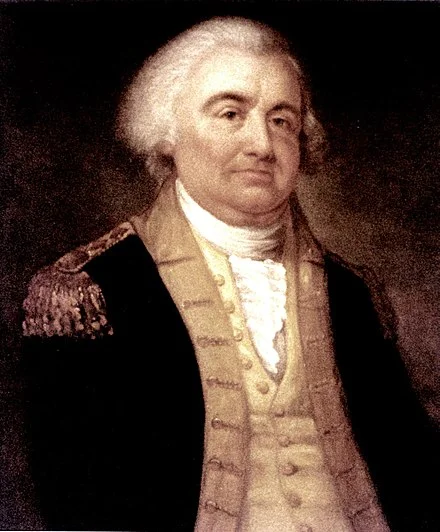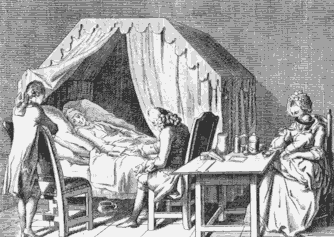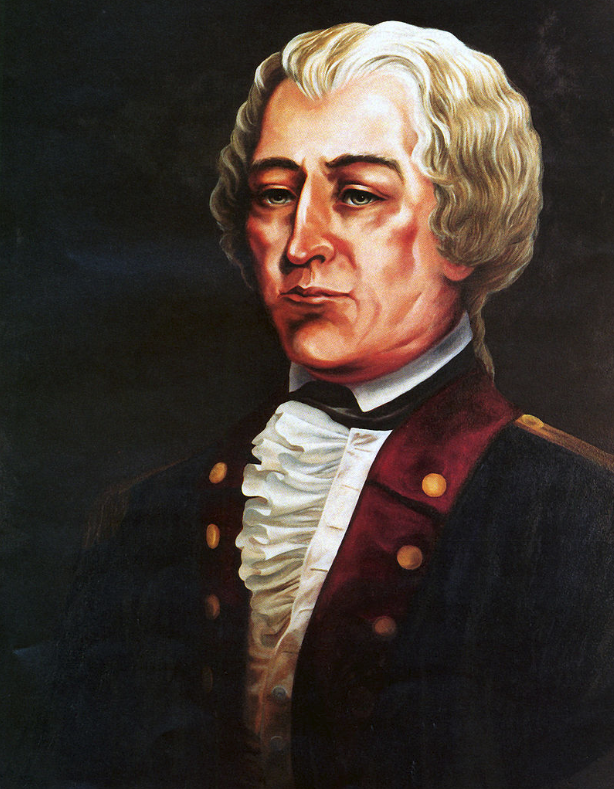John Lamb Doesn't Watch The Money Close Enough
John Lamb was an Artillery Captain in the Revolutionary War.
He went on to be the first Customs Collector for the Port of New York in American history.
John Lamb
Sure, John Lamb was trained as an optician by his father. But upon reaching adulthood, John found another business that suited him better.
John became a wine seller.
Lamb’s company took off and he became very wealthy. Turns out the colonials really enjoyed some hearty drink.
When Great Britain passed the Tea and Stamp Acts, his business was not affected directly. However, Lamb understood the pains suffered by his fellow New York City merchants and quickly devoted himself to the Patriot Cause.
Artillery Captain
John Lamb became an early leader in Revolutionary New York.
As soon as hostilities began, Lamb joined the local Militia in capturing British supplies on the isle of Manhattan. He soon thereafter signed on with the Continental Army as a Captain of Artillery.
John followed General Richard Montgomery to Canada and participated in the Battle of Quebec. Unfortunately, he was taken prisoner during this disastrous engagement.
Lamb was released several month later and returned to the Continental Army. He spent most of the Revolutionary War commanding the artillery at West Point (including being present for the treason of Benedict Arnold).
John journeyed south for the Victory at Yorktown, commanding an artillery regiment and receiving commendation by none other than the master of cannons, Henry Knox.
Just before the disbanding of the Continental Army, General Washington gave John Lamb the honorary title of Brigadier General.
Customs Collector
The following year, John Lamb was appointed by the Confederation Congress as the first Customs Collector of the Port of New York.
Customs Collectors were being appointed across the United States in an effort to raise some money for the Confederated Government (the country was still operating under the Articles of Confederation at this time).
New York, as one of the largest and fastest growing ports in the United States, was quite an esteemed position. In fact, it would within thirty years be considered one of the most powerful positions in the nation.
Anti-Federalist
During the Constitutional Ratification Debates, John Lamb became an outspoken Anti-Federalist. He wrote several essays in response to arguments presented in the Federalist Papers.
Although New York was a hotbed of Anti-Federalist sentiment, it is peculiar to see a person with one of the highest-ranking federal positions in the State speaking this way. Apparently, he carried the attitude that collecting tariffs to provide for a common defense was fine but have other States (such as tiny Delaware and Rhode Island) making laws for the people of New York was too much to bear.
As we know, the Constitution was passed.
Despite his opinion, President Washington allowed Lamb to maintain his position. This seems to be because he was a veteran with whom George was familiar who carried out his duties responsibly.
Well, everyone thought he was being responsible…
Embezzled
After thirteen years as Customs Collector, John Lamb’s business partner became ill.
To pick up the slack, Lamb gave one of his employees increased responsibility. But this was no ordinary employee.
The employee had been imprisoned years before for debt. Out of the kindness of his heart, John bailed this man out of jail and gave him a job.
Everything seemed to be going well until John’s partner passed away. Shortly thereafter, the employee left his position.
Suddenly, Lamb realized this person had been embezzling from him. Some of that money had come from the Federal Government’s coffers!
Broke
The incident was investigated by several men, including one of Lamb’s political enemies in Alexander Hamilton.
Fortunately, Hamilton was reasonable about the whole situation and realized nothing was actually Lamb’s fault. Hamilton permitted John to repay his debt with some property he owned.
Not so fortunately, several political enemies were able to devalue John’s land and, though he was able to balance out the government money he owed, he was flat broke.
John Lamb passed away three years later without having recovered his fortune.
The best biography of John Lamb was written in 1850 and can be read for FREE here.
If you’d like to learn about some other Founders who died broke, click on our articles regarding Robert Morris and James Wilson.
Since I’ve already recommended a free book on John Lamb, I am going to reference one of my favorite American Revolution books today because I rarely have the chance to on this site. If you have not read ‘Unlikely Allies’ yet, you simply must. It is one of those great ‘you can’t make this stuff up’ stories and it revolves around one of the most important (and underappreciated) moments in the history of the United States. Get it at your library or from our Amazon affiliate link below.






